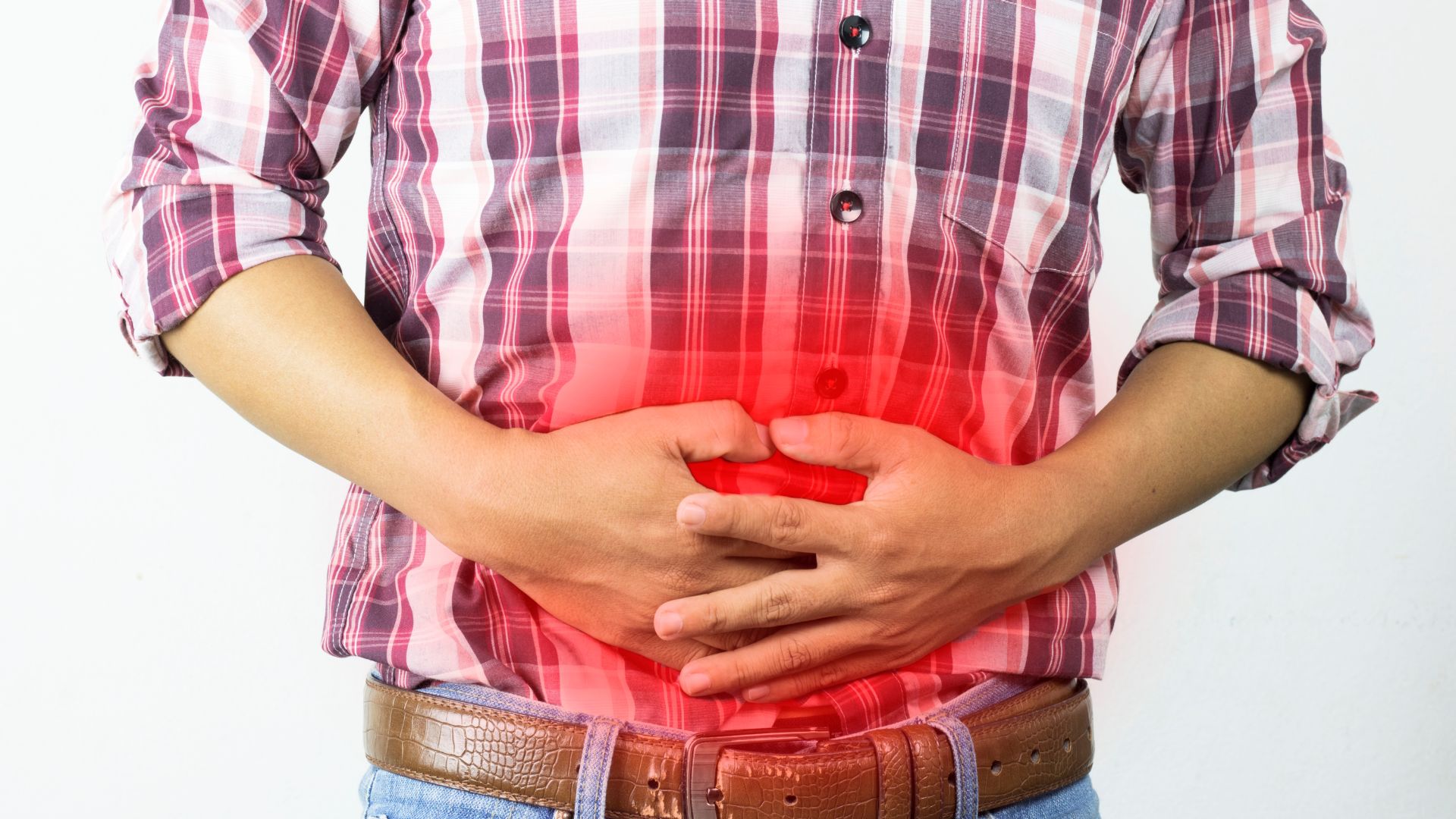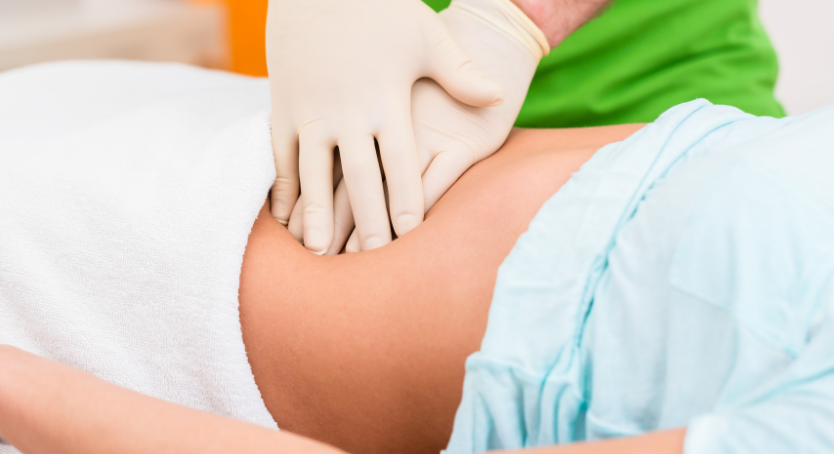Our gastrointestinal tract is a complex system. Much like a machine, the more intricate it is, the higher the chance of complications.
One such complication is ulcerative colitis (UC), a chronic inflammatory bowel disease (IBD) that primarily affects the colon and rectum. With over 5 million cases worldwide, UC is more common than many realise. While anti-inflammatory medications can help manage symptoms, UC patients may be concerned about its potential link to more serious conditions—including colon cancer.
Does ulcerative colitis increase your risk of colon cancer? In short, chronic inflammation from UC can be a contributing factor, but there is no definitive causative link. Nonetheless, regular colon screenings and proactive management of UC symptoms can help detect risks early, ensuring timely treatment. Read on to explore the connection between UC and colon cancer, and what you can do to lower the risk of developing colon cancer.
Table of Contents
ToggleUnderstanding Ulcerative Colitis
Ulcerative colitis is a chronic inflammatory condition that affects the colon (large intestine) and rectum. This occurs when your immune cells mistakenly recognise healthy cells as foreign and start to attack them. Over time, ulcers develop along the colon’s lining, which can lead to symptoms such as bleeding and pus.
People with ulcerative colitis may experience a range of symptoms, including:
- Diarrhoea
- Abdominal pain
- An urgent need to poop even when bowels are empty
- Unexplained weight loss
- Blood in the stool (rectal bleeding)
- Fever
- Flare-ups such as arthritis, mouth ulcers, and red eyes
People often get confused between UC and Crohn’s disease as they both fall under a broader category called Inflammatory Bowel Disease (IBD). However, there are key differences between the two:
- Location of inflammation: Crohn’s disease can affect any part of the gastrointestinal tract, from the mouth to the anus, while UC is limited to the colon and rectum.
- Extent: The intestinal wall is composed of multiple layers. In UC, inflammation is restricted to the innermost lining of the colon, while inflammation for Crohn’s disease patients can extend through all layers of the intestinal wall.
- Pattern: Crohn’s disease typically causes patchy inflammation, meaning affected areas are interspersed with healthy tissue. In contrast, UC presents continuous inflammation that spreads throughout the affected region of the colon.
Does Ulcerative Colitis Increase Your Risk of Colon Cancer?
Studies have shown that the risk of developing colon cancer starts to increase 10 years after the initial diagnosis of UC. This is because chronic inflammation, typical in UC patients, can trigger the release of reactive oxygen species (ROS)—harmful molecules that cause DNA damage. As the body works to repair inflamed tissues, it rapidly produces new cells, requiring more rounds of DNA replication. This further increases the risk of DNA mutations that contribute to cancer development.
There are two main types of cancer-causing mutations: oncogenes and tumour-suppressor mutations. Oncogenes are mutations that stimulate uncontrolled cell proliferation. Normally, our body has tumour-suppressive functions to detect and control these abnormalities. When this ability is lost through mutations, cells continue to grow abnormally, leading to dysplasia. Overtime, the cells may invade other spaces and become cancerous.
Other risk factors for colon cancer in UC patients include:
- Younger age during initial diagnosis
- Location and extent of inflammation: Pancolitis (inflammation across the entire colon) have a higher risk than those with a more localised inflammation.
- Duration of UC diagnosis: The average time from initial UC diagnosis to colon cancer development is 17 years.
- Family history of colon cancer
Since chronic inflammation significantly raises the risk of colon cancer, regular colonoscopies and early screenings are crucial for early detection and prevention. If you have UC or Crohn’s disease, talk to your doctor about proactive cancer screening to protect your long-term health.
Signs and Symptoms to Watch For
UC symptoms such as blood in stool, changes in bowel habits, and abdominal pain can closely resemble early warning signs of colon cancer, making regular screenings essential for a proper diagnosis and treatment.
With colon cancer, these symptoms often worsen and persist over time. Important symptoms to watch for include:
- Persistent changes in bowel movements that last more than a few weeks
- Narrow or ribbon-like stools indicating a possible obstruction
- Increased frequency of rectal bleeding
- Iron-deficiency anaemia due to slow, chronic blood loss
People with UC have a higher risk of developing colon cancer, making it imperative for regular colon screening to detect cancerous growth earlier. UC patients should get a colonoscopy once every 1-2 years.
Importance of Regular Colon Screening for UC Patients
As people with Crohn’s disease have a higher risk of colon cancer, getting regular colon screening is crucial. A range of screening methods are available to assess colon health, detect abnormalities early, and provide timely intervention. Common screening options include:
Physical examination
The doctor will first feel your abdomen for any swelling and pain upon pressure. To examine problems in the rectum and anus, they may insert a gloved, lubricated finger into the anus to check for lumps or swelling. If you feel uncomfortable, let your doctor know. However, this process should not be painful.
CT Scan (Computed Tomography)
A CT scan is an advanced imaging technique that uses X-rays to create detailed cross-sectional images of the body. It provides a more precise and comprehensive view than a standard X-ray, allowing doctors to detect abnormalities such as tumours. The procedure is quick and non-invasive.
MRI (Magnetic Resonance Imaging)
MRI scans utilize powerful magnetic fields and radio waves to generate detailed images of organs and tissues. Unlike CT scans, MRIs do not use radiation, making them a safer option for certain patients e.g. pregnant women.
Colonoscopy
A colonoscopy is a procedure used to examine the inner lining of the colon and rectum. A thin, flexible tube with a camera (colonoscope) is inserted through the rectum, allowing physicians to examine abnormalities like inflammation, ulcers, polyps, or tumours. If any of these are found, tissue samples will be taken for a biopsy. Colonoscopy is a crucial screening tool for early detection of colorectal cancer and other digestive disorders.
To clean the bowel, you may be required to take a laxative before the examination. Similarly, solid foods are not allowed the day before the exam. You will be sedated during the process; do not let the worry of pain or discomfort stop you from getting a screening. Air and water may be injected to clean and expand the colon for better visualisation. Hence, you may feel bloated for a few hours afterwards.
Blood Tests
Blood in stool is a distinctive sign of gut abnormality. This is typically reserved for people without visible rectal bleeding as only a small amount of blood is formed. Generally, there are 2 types of tests:
- FOBT (Fecal Occult Blood Test): Detects hidden (occult) blood in stool using a chemical reaction (guaiac-based test).
- FIT (Fecal Immunochemical Test): Uses antibodies to detect human hemoglobin (blood protein) in stool.
FIT is a more convenient method as it does not require any dietary or medication restrictions the day before the test. However, blood tests only detect if blood is present, hence it is typically followed up with other screening methods to determine the source of bleeding.
How to Reduce Your Colon Cancer Risk
Reducing the risk of colon cancer, especially for ulcerative colitis (UC) patients, requires a proactive approach to gut health and regular screening. To lower your risk, follow these key strategies:
- Adopt an anti-inflammatory diet: Eat fiber-rich foods, leafy greens, lean proteins, and omega-3 fatty acids while avoiding red and processed meats.
- Maintain a healthy lifestyle: Exercise regularly, avoid smoking, and limit alcohol consumption to reduce overall cancer risk.
- Take prescribed medications consistently: Immunosuppressants can help control inflammation and lower cancer risk. However, do talk with your doctor about which medications would suit your needs.
- Manage stress levels: Chronic stress can worsen UC symptoms and negatively impact gut health. Daily movement and finding time for personal enjoyment is key to both physical and mental health.
- Schedule regular colonoscopies: Early detection is crucial, especially if you had UC for more than 8-10 years. Follow your healthcare provider’s guidance for check-ups and tests to monitor colon health. Generally, colonoscopy screening should begin at 50 years old for individuals without any risk factors, or earlier for those with risk factors.
Conclusion: Stay Proactive About Colon Cancer Prevention
Early detection is key to reducing colon cancer, especially if you have gut issues like Ulcerative Colitis or Crohn’s Disease. Regular screening can help to identify precancerous changes and treat them before they develop into something more sinister. If you experience the symptoms mentioned above, don’t wait – schedule your colonoscopy with us today!
Safeguard Your Health Today
At Centre for Screening and Surgery, we prioritise delivering quality and comfortable early cancer screening and treatment using minimally invasive procedures. If you are concerned about your gut health and is looking for a colorectal screening, call us to book an appointment today!





